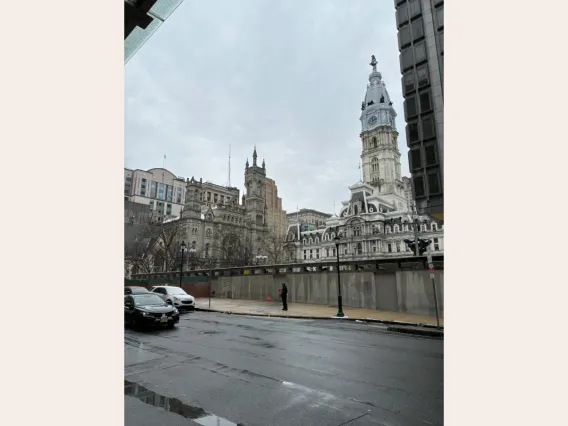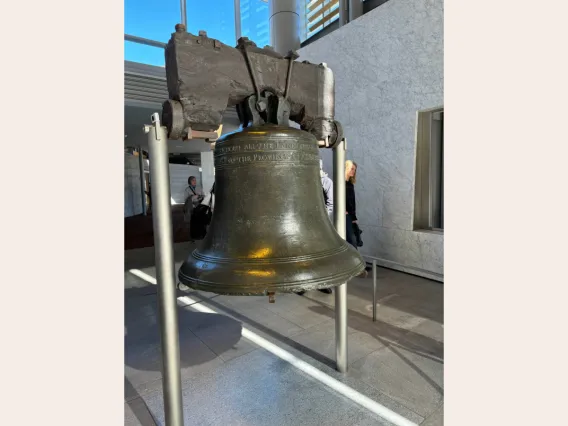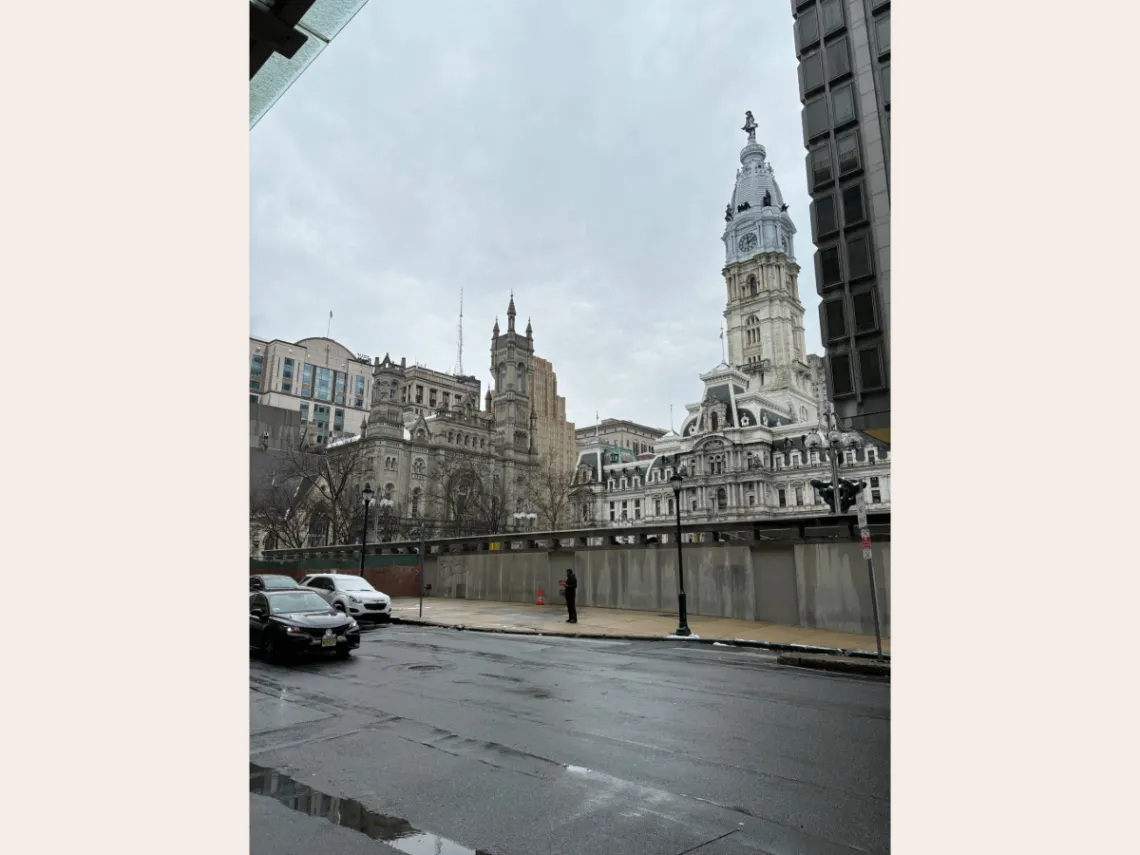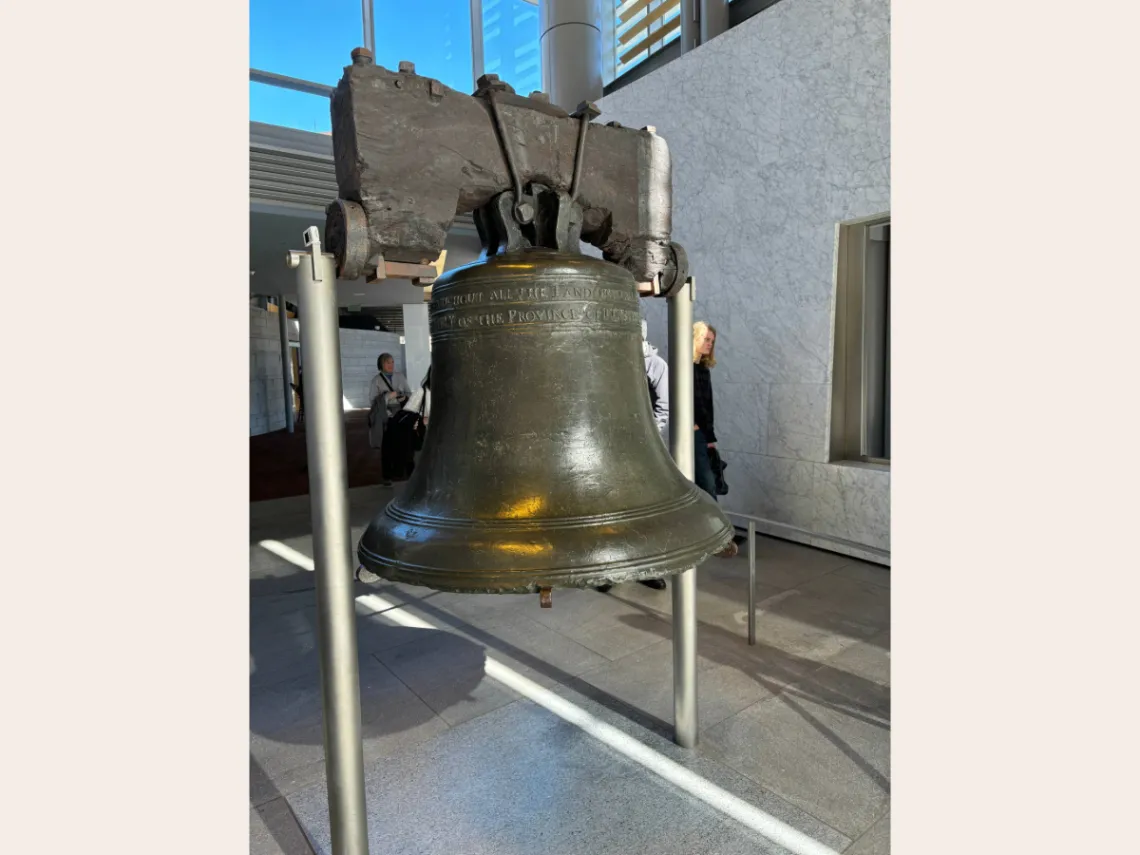Clare Hotze, CBC Undergraduate attends the Annual Biophysical Society Meeting in Philadelphia, PA.
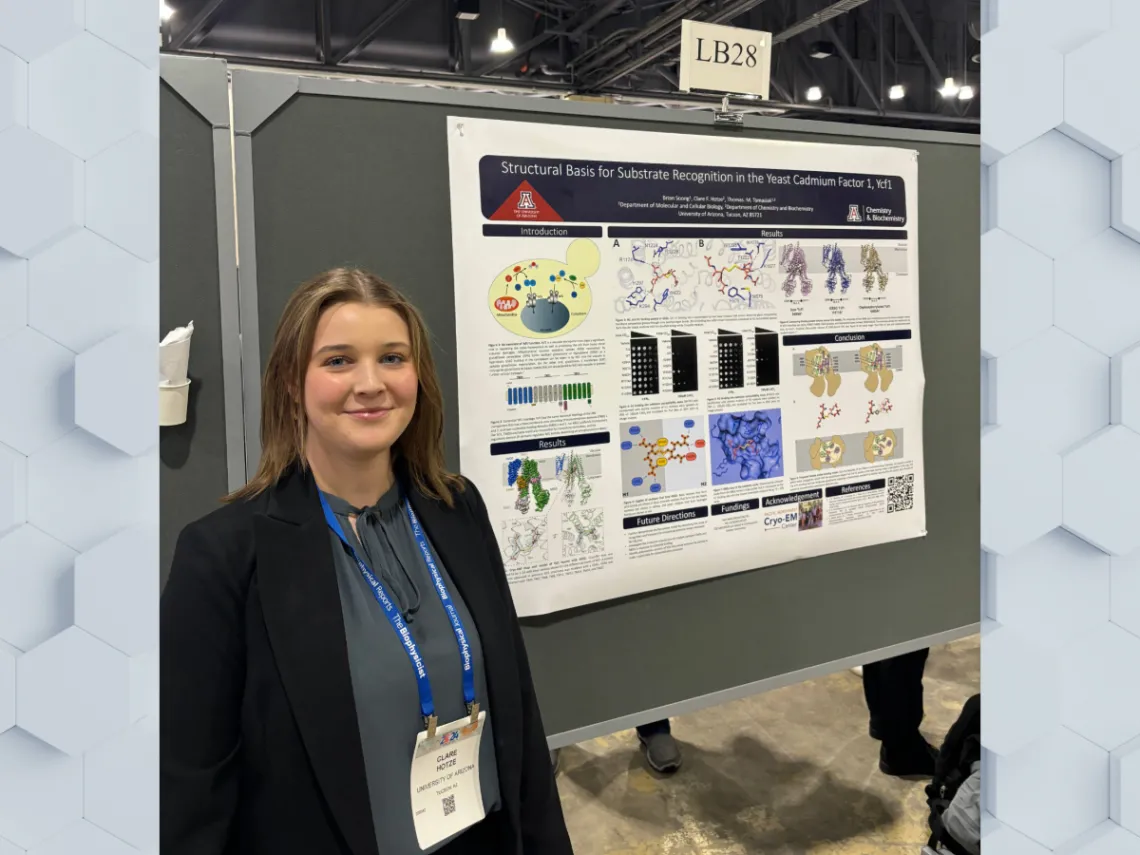
"This year, I was given the opportunity to attend the annual Biophysical Society meeting in Philadelphia, PA. At this meeting, scientists from around the world meet to discuss advancements in the world of biophysics and biochemistry. Through poster sessions, symposia, and workshops, I learned a lot about the world of science networking and how scientists can communicate outside of paper publications. I was even able to help present the research done in my lab on membrane transport proteins. However, my research is just one small part of the larger field of biophysics. One of my favorite symposiums was “Peptides as the Future of Biological Drugs”. I saw a presentation from Dr. César de la Fuente at UPenn that discussed his lab’s work towards the discovery of anti microbial peptides using machine learning and genes from ancient humans to find portions of proteins that have the capability of inhibiting bacterial growth. Another talk during this symposium was by Dr. Robert Hancock from the University of British Columbia, whose lab combines previously established antibiotics with novel antimicrobial peptides to combat biofilm formation in bacterial infections. I was excited to hear about the future of antimicrobial peptides because I would like to explore the area of antibiotic resistance later in my career.
By far the most well-attended presentation (and for good reason) was the talk given by Dr. Carolyn Bertozzi, who won the 2022 Chemistry Nobel Prize for her work on bioorthogonal reagents. She uses copper reactions to monitor the presence of sugars on the membranes of cancer cells without interfering with the function of the sugars or proteins using the sugars as substrates. These sugars, tagged onto the ends of proteins, send a signal to the immune system that the cancer cells should not be killed. However, using bioorthogonal chemistry, Dr. Bertozzi was able to clip off these “don’t kill me” sugar signals and trick the immune system into killing cancer cells. Her research is an excellent example of the kinds of applications that biophysics can have in the real world.
I am so grateful for the Michael A. Wells Memorial Scholarship that made it possible for me to attend this conference. Thanks to this scholarship, I was able to see research presented at the graduate and professional levels, as well as gain new insights for my research into the biophysical properties of membrane transporters. I am so thankful that this scholarship allowed me to see the world of research outside of my own previous experiences."







